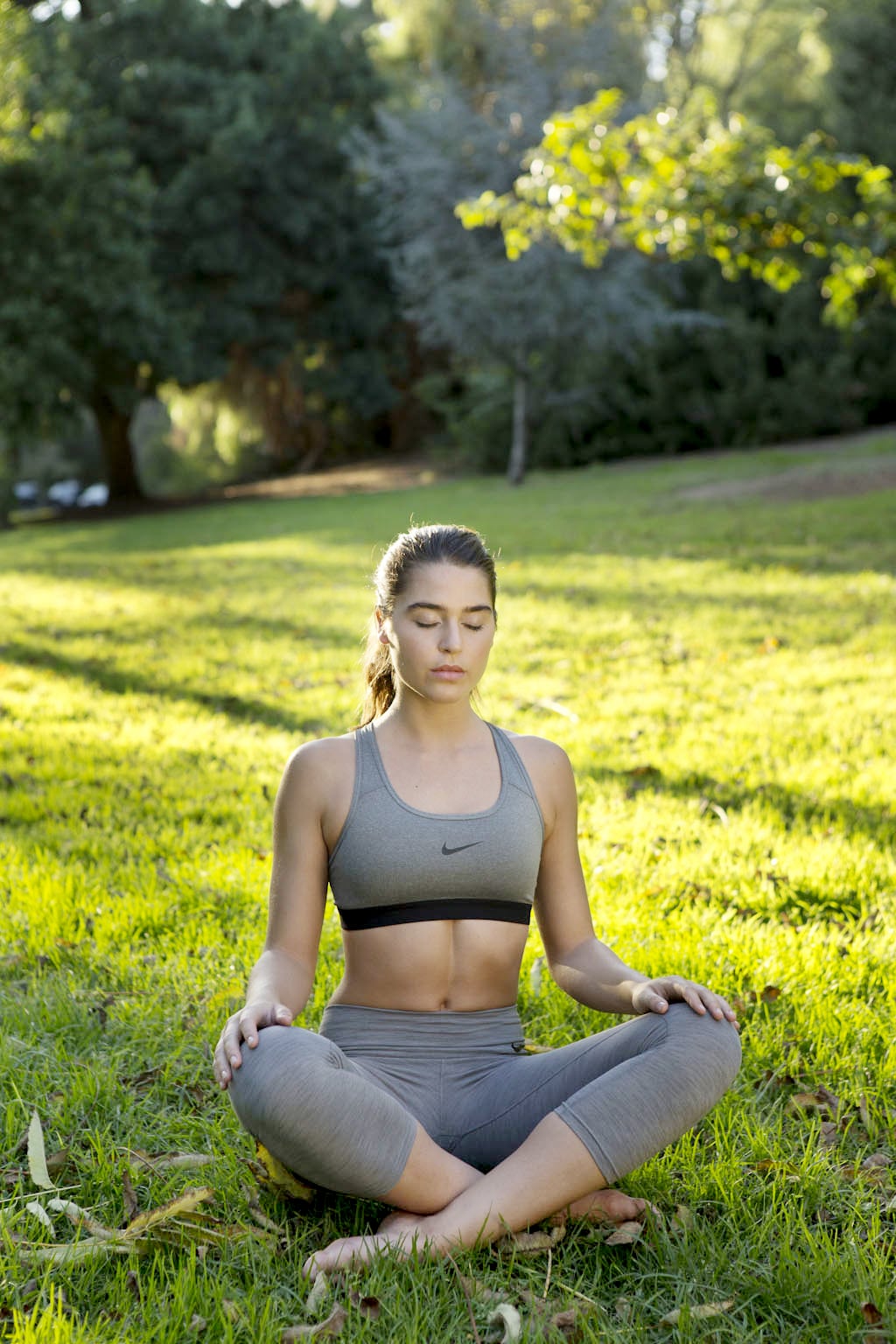

There's no quiet in a college dorm. Slamming doors, drunk kids in search of late-night food, and Alicia Keys on repeat tested the limits of my neighborly spirit. I remember sitting at my desk, wide-eyed and jittery, rereading the first page of my English paper ahead of my first-semester finals. Nope, I thought, this won't work. I shut the computer, closed the door, and climbed into my bottom bunk. With my hands folded in my lap, I glanced at the clock, gently closed my eyes, and silently began my mantra. Fifteen minutes later: clarity. The frustration subsided, even if the noise had not.
Years later, I know that's exactly how my dad had envisioned me using meditation: my secret weapon. It's been his for more than 30 years. My dad discovered TM, or transcendental meditation, when he was in law school. Like many young adults in the late '60s and early '70s, he joined meditation groups and retreats. You might have called him a hippie, but decades after the "trend," he was a successful attorney, meditating at least once a day for as long as I can remember and long before I knew what it was.
For the better part of my childhood, it kind of was a secret. My dad would come home and shut the door to his office for 20 minutes or so. I would presumptuously tell telemarketers or friends calling for him that he was "meditating" without having any clue what he was doing (I probably should have just said "he's busy"). As far as I could tell, it looked like he was just sleeping, sitting up in his chair. I couldn't wrap my brain around how that could be different from a nap - until I did it.
My senior year of high school, my dad took me to get TM certified. My sister had done it before her graduation the year before, and my brother his senior year, a couple of years before that. It was a gift our father insisted on giving to all of us before we headed to college, some kind of "tool" he promised we would rely on for the rest of our lives. I doubted that; I much preferred the kind of tool I could use in the moment, like maybe a car? Regardless, I made it to my first session with a TM instructor, who gave me my own mantra and the simple steps I would take to meditate. I sat up straight, clasped my hands, closed my eyes, and silently began.
It's going to sound crazy to tell you how it immediately calmed me, changed my breathing and my thought process, and seemed to actually be physically changing the space around my head, but it did. I meditated for only 15 minutes, but felt as if I'd awoken from a deep, satisfying sleep - the kind that doesn't leave you groggy, if you can imagine that.
I've been certified for almost 13 years, and pretty much have that feeling every time I sit down to meditate - though, full disclosure, it's not every day or nearly as often as I would like. Sometimes, I just want to nap or watch TV or sweat it out at SoulCycle, but meditating does something for your body that those things can't. And before internet, Oprah, or all those iPhone apps started touting its health benefits, my dad knew the simple truth: meditation is the greatest stress relief you can give your body.
Stress Reduction
That's a pretty big deal, considering all the health problems linked with elevated stress levels, namely high blood pressure, anxiety, depression, excess cortisol production, and higher risks of heart attack and stroke. I'm not saying meditation is the cure-all, but the benefits are hard to ignore:
1. Slows the Aging Process
My parents are both in their late 60s, but you'd never know it from looking at them. My dad has pretty much looked the same for the past two decades. Good genes? Yes, but meditation counts for a lot. Studies have shown that those who practice TM biologically appear younger than they are.
2. Reduces Rates of Heart Attack and Stroke
Studies have found that practicing TM can help lower your blood pressure and reduce the risk of heart attack and stroke by 48 percent. I'm happy to report that neither parent has had any heart-related health issues. In fact, aside from just a couple of very minor things, they're both in excellent health, making the benefits all the more real to me.
3. Aids Weight Loss
Cardio isn't always the answer when you're struggling with stubborn pounds. Stress hormones like cortisol can be the cause, but meditation can help soothe anxiety and calm the body, making a very physical difference.

Meditation has a very powerful effect on our minds and, in turn, a very real effect on our bodies. I could add to this list, how it helps the nervous system and pain reduction and helps promote productivity and strong relationships. It does all of those things, but a study isn't what compelled me to get certified. And while you're probably thinking that I actually didn't have much choice in the matter, it was mine to practice.
I chose to meditate in college on my own for the first time. That decision kept me coming back around the chaos of finals, the depression that came with bad breakups, and the anxiety that came with graduating and starting something new all over again. Every time I sat down to meditate it felt like a decision to heal myself, in some small way.
Six years ago, I watched my mom turn religiously to meditation when she was diagnosed with breast cancer, finding strength in the quiet, restorative practice. I came to regard it as the ultimate form of self-care.
Now, I choose it when no doctor seems able to ease the pain of my gut-wrenching cramps that come every month, when I'm homesick and lonely, or when I'm completely overwhelmed by the demands that come with a crazy, busy, awesome job and an equally full plate at home. I close my eyes, say my mantra, and give it 15 minutes till clarity and relief. Now, tell me that's not an extraordinary gift.

0 comments :
Post a Comment